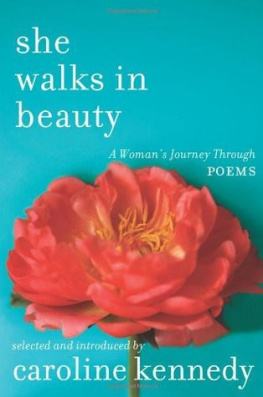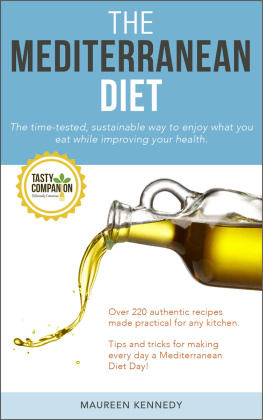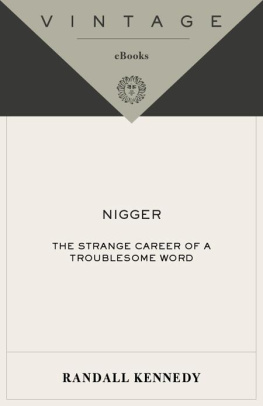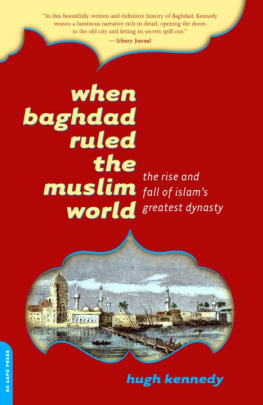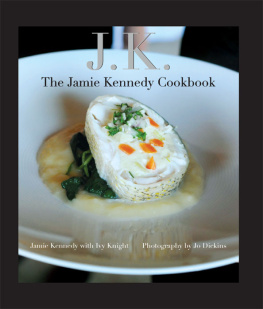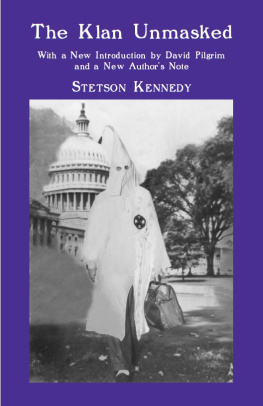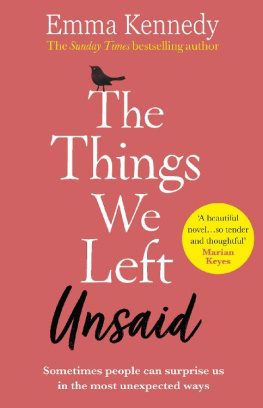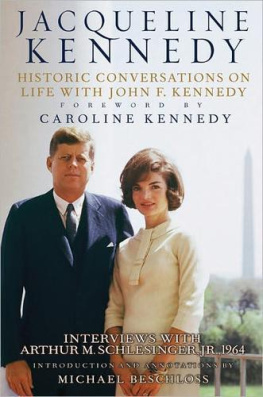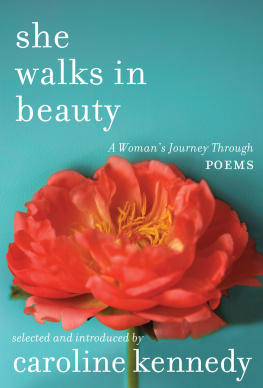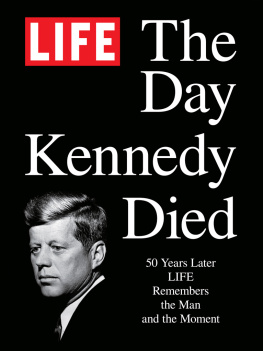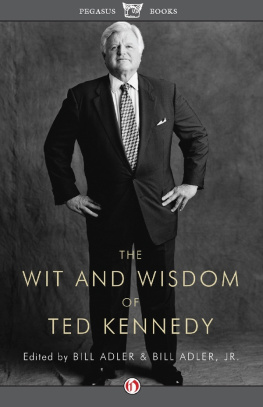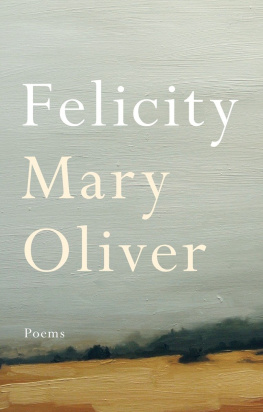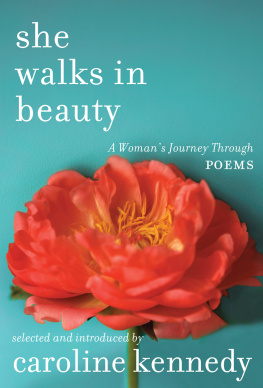C ONTENTS
GEORGE GORDON, LORD BYRON She walks in beauty, like the night Of cloudless climes and starry skies; And all thats best of dark and bright Meet in her aspect and her eyes: Thus mellowd to that tender light Which heaven to gaudy day denies. One shade the more, one ray the less, Had half impaird the nameless grace Which waves in every raven tress, Or softly lightens oer her face; Where thoughts serenely sweet express How pure, how dear their dwelling-place. And on that cheek, and oer that brow, So soft, so calm, yet eloquent, The smiles that win, the tints that glow, But tell of days in goodness spent, A mind at peace with all below, A heart whose love is innocent! T HIS BOOK BEGAN around the time I turned fifty. Like my friends who had been there before me, I dreaded it for months, and was relieved when it was over and life seemed much the same as before. One of the nicest things that happened was that three friends sent me poems to mark the occasion. One poem was about love, one helped me cope with loss, and the third spoke to ways of being.
I kept them and passed them on to others when the time seemed right. To me, thats the gift of poetryit shapes an endless conversation about the most important things in life. Creating an anthology of poems centered around the stages of a womans life still seems like an unlikely project to me. I have shied away from the personal genre of literature, and never thought that growing old would be something I would do. Perhaps thats because, in my family, my cousins and I still refer to our parents generation as the grown-ups, although most of us are in our fifties. But there seemed to be something profoundly different about hitting the middle-age marka sense of accomplishment, an emotional reckoning, and a feeling of renewed possibility about the future.
All that, and a tiny terror of sliding down the hill into a crumpled heap of old age. Working on this book reminded me that the personal is universal, being a woman is a profound part of who I am, and sharing experiences and emotions is the best way we can help ourselves and others. Approaching middle age made me appreciate my deep connection to the women I have grown up with, worked with, and whose children have grown up with mine. We have learned what is important, we can look back as well as forward, and we have the chance to weave the choices we have already made into the changes we want to bring to our lives. Reading poems can help bring clarity and insight to emotions that can be confusing or contradictory. Women have always been at the center of poetrythroughout history we have been its inspiration, and more recently, women are the authors of the most profound poetry of our time.
One of the oldest known poets in the world is a womanSapphoand her fragments of verse are as emotionally piercing today as the work of many modern writers. The love poetry of medieval troubadours, Renaissance playwrights, and Romantic poets (almost exclusively men) celebrated female beauty and mystery; conquest, heartbreak, and desire. In the twentieth century, women poets gave voice to the pain and joy, relationships and loneliness, the work and the life of women. In todays world, as women struggle to balance work and family, to be good mothers and friends, to care for our children and our parents, poetry can help us accept our limitations, and inspire us to overcome them. In a world where language is too often used to manipulate, poems can help us find our authentic voice. The book is divided into sections that seem broad enough to encompass the milestones in a womans lifeFalling in Love, Breaking Up, Marriage, Motherhood, Death and Griefbut they are intended as helpful, if arbitrary, dividers.
Other sections are about some of the things that make us happy, like Friendship or Beauty. My favorite section is the one titled How to Live. It includes the poems that started this book, and many others, each containing wisdom that has helped me on my own journey. Collecting these poems reminded me that when I was younger, I thought my task was to forge ahead and succeed as an individual. But growing older has helped me realize that our success lies in our relationshipswith the family we are born into, the friends we make, the people we fall in love with, and the children we have. Sometimes we struggle, sometimes we adapt, and at other times we set a course for others to follow.
We are all leaders and followers in our lives. We are constantly learning from and teaching one another. We learn, too, that the most important work is not done by those who seem the most important, but by those who care the most. Women have always been the weavers of the world, literally and figuratively. We weave people together, we weave the experiences of life into patterns, and we weave our stories into words. Poetry has been one of the ways we do this.
Poems distill our deepest emotions into a very few wordswords that we can remember, carry with us, and share with others as we talk and weave the cloth of life. T HERE ARE SO MANY WAYS TO FALL IN LOVE and so many people to fall in love with. When I was young, I went to a convent school, read historical romances, and dreamed of the day a modern Scarlet Pimpernel would sweep me off my feet, but really, I was only in love with my pony. As a result, in high school, I was way behind the girls who had already figured out the basics of human-to-human love and despaired of ever having a boyfriend. One of the reassuring things my mother said to me was that if you love someone, that person will love you back. Although there is not much evidence to support that theory, I decided to believe it, and eventually, like all mothers, she turned out to be right.
Now, as I watch my children fall in love, it brings back the memories of excitement, uncertainty, adventure, and the joy of belonging to someone. Falling in love means you arent a child anymore and, as Rumi writes in Come to the Orchard in Spring, nothing else matters. In these poems, John Keats captures the essence of desire, Percy Bysshe Shelley expresses the delights of kissing, and Christopher Marlowe rules out anything but love at first sight. Throughout the ages, one of poetrys challenges has been to express mystical experiences in language. Falling in love is a series of moments in which the ordinary becomes extraordinary. Those moments are not continuous, but the sense of union with another person is just about the best thing there is.
Perhaps that is why Dorothy Parker celebrates our need to do it over and over again. GERTRUDE STEIN Very fine is my valentine. Very fine and very mine. Very mine is my valentine very mine and very fine. Very fine is my valentine and mine, very fine very mine and mine is my valentine. JOHN KEATS O blush not so! O blush not so! Or I shall think you knowing; And if you smile the blushing while, Then maidenheads are going.
Theres a blush for wont, and a blush for shant, And a blush for having done it: Theres a blush for thought, and a blush for naught, And a blush for just begun it. O sigh not so! O sigh not so! For it sounds of Eves sweet pippin; By those loosened lips you have tasted the pips And fought in an amorous nipping. Will you play once more at nice-cut-core, For it only will last our youth out? And we have the prime of the kissing time, We have not one sweet tooth out. Theres a sigh for yes, and a sigh for no, And a sigh for I cant bear it! O what can be done, shall we stay or run? O, cut the sweet apple and share it! THE HONORABLE CAROLINE ELIZABETH SARAH NORTON I do not love thee!no! I do not love thee! And yet when thou art absent I am sad; And envy even the bright blue sky above thee, Whose quiet stars may see thee and be glad. I do not love thee!yet, I know not why, Whateer thou dost seems still well done, to me: And often in my solitude I sigh That those I do love are not more like thee! I do not love thee!yet, when thou art gone, I hate the sound (though those who speak be dear) Which breaks the lingering echo of the tone Thy voice of music leaves upon my ear. I do not love thee!yet thy speaking eyes, With their deep, bright and most expressive blue, Between me and the midnight heaven arise, Oftener than any eyes I ever knew.
Next page
